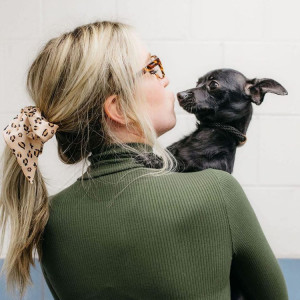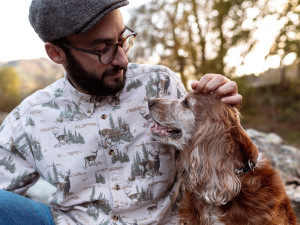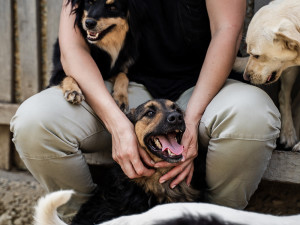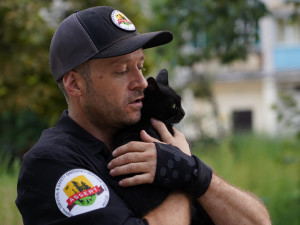11 Things I Learned Volunteering at an Animal Shelter
You too can get rescued by shelter animals.
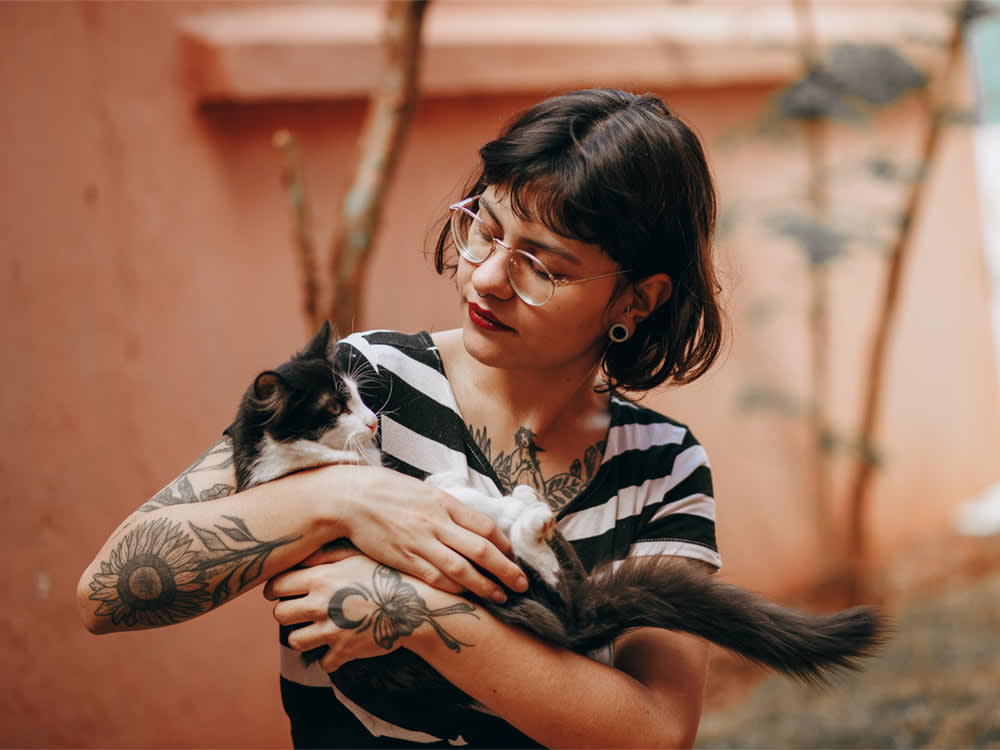
share article

Your pet wants you to read our newsletter. (Then give them a treat.)
While volunteering at my local animal shelter, I found an extraordinary kind of love. The unique love and inspired hope of shelter pets. After all these years, working with shelter pets continues to soften my heart and feed my soul. If you’re considering volunteering at an animal shelter, now’s the perfect time to start! Get ready to make your life better and add joy to the life of a shelter dog. Here are things I learned while volunteering.
1. Every time you volunteer, you are fueled by love.
And that kind of fuel is different from greed, fear, or competitiveness. It will give you the strength to do things you never thought you could do. And then some.
2. Dress for the occasion.
That means wearing jeans and a T-shirt that have seen better days. Leave your jewelry, especially dangly earrings, at home. Keep your hair in a messy bun (some dogs mistake ponytails for rope toys). Please don’t bother with makeup; it will inevitably be licked off your face. And for crying out loud, no flip-flops. The day you wear them will be the day you inevitably step in poop.
3. Don’t be afraid to talk to the animals.
Tell them about the advice you give but cannot follow. Tell them your secrets and fears. And then let their tongues, thumping tails, purrs, and clumsy paws remind you that there are still plenty of reasons to smile. That life is not as serious as it seems.
4. Stay off of social media.
It is not a good idea to try posting pictures of animals on Instagram when they are jumping all over you. Rather than typing, “Adopt Joey and Spot at the Department of Animal Services,” you will inevitably type “Department of Anal Services.” And then your post will go viral for all the wrong reasons.
5. You have the strength to do it.
When you tell someone that you volunteer at an animal shelter, and they say that they love animals—but it’s too sad, they could never do it—tell them that you once felt that way, too. Tell them how shocking it was to find out that you could in fact do it. And that sadness is not the enemy after all. The enemy is doing nothing. The enemy is fear beating out compassion and empathy and love.
6. Poop is not that big of a deal.
Yeah, poop is gross but not life-threatening.
7. In most cases, it doesn’t take much to make a tail wag.
A good petting session. A yard of grass. Fresh food. A warm touch. A soft blanket. A ten-minute walk. Shelter dogs and cats appreciate the little things, and we can learn a lot from this.
8. The animals are seeking what you seek.
They want to be warm, not cold. They want to be safe, not vulnerable and unprotected. They want to be seen and heard and loved, not invisible. They want to be themselves, not somebody else. They want to forget the pain of their pasts, but sometimes they can’t.
9. Learn to take care of yourself.
Even if, at first, it’s for the sake of the animals. If you try to be everything to everyone, you will burn out. Set boundaries. If you don’t take care of yourself, you can’t take care of them.
10. Goodbyes are hard.
Always.
11. Frequently ask yourself this:
How might my life be transformed if I treated myself with the same love and kindness that I offer to the animals I care for? And then, every day, try to do it.

Shannon Kopp
Shannon Kopp, author of Pound for Pound, is a writer, eating disorder survivor, and animal welfare advocate. She has worked and volunteered at various animal shelters throughout San Diego and Los Angeles, where shelter dogs helped her to discover a healthier, more joyful way of living. Her mission is to help every shelter dog find a loving home, and to raise awareness about eating disorders and animal welfare issues.
Related articles
![Man with beard and wearing glasses and a grey hat sitting outside petting the head of his old foster dog]() opens in a new tab
opens in a new tabFoster Parenting 101: How to Be the Best Caregiver to Your Guest Pets
All the steps you can take.
![A caretaker surrounded by four dogs]() opens in a new tab
opens in a new tabGive Back and Vacation Abroad with Purpose
See the world, indulge in new experiences, and save animal lives.
![Douglas Thron, in his rescue pilot uniform hugging a rescued black cat to his chest outside]() opens in a new tab
opens in a new tabWe Are Now Living in the Age of Drone Animal Rescue
ASSERT is the first on the ground for emergency aid around the world.
![anonymous woman pampering and taking care about a small ginger kitten]() opens in a new tab
opens in a new tab6 Ways to Help Local Shelters Without Committing to Full-Time Pet Parenthood
Adoption isn’t for everyone—here are other ways you can be there for animals in need.
